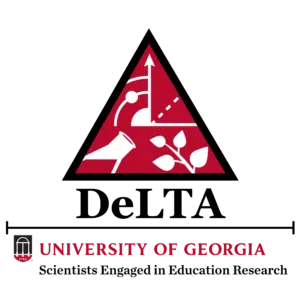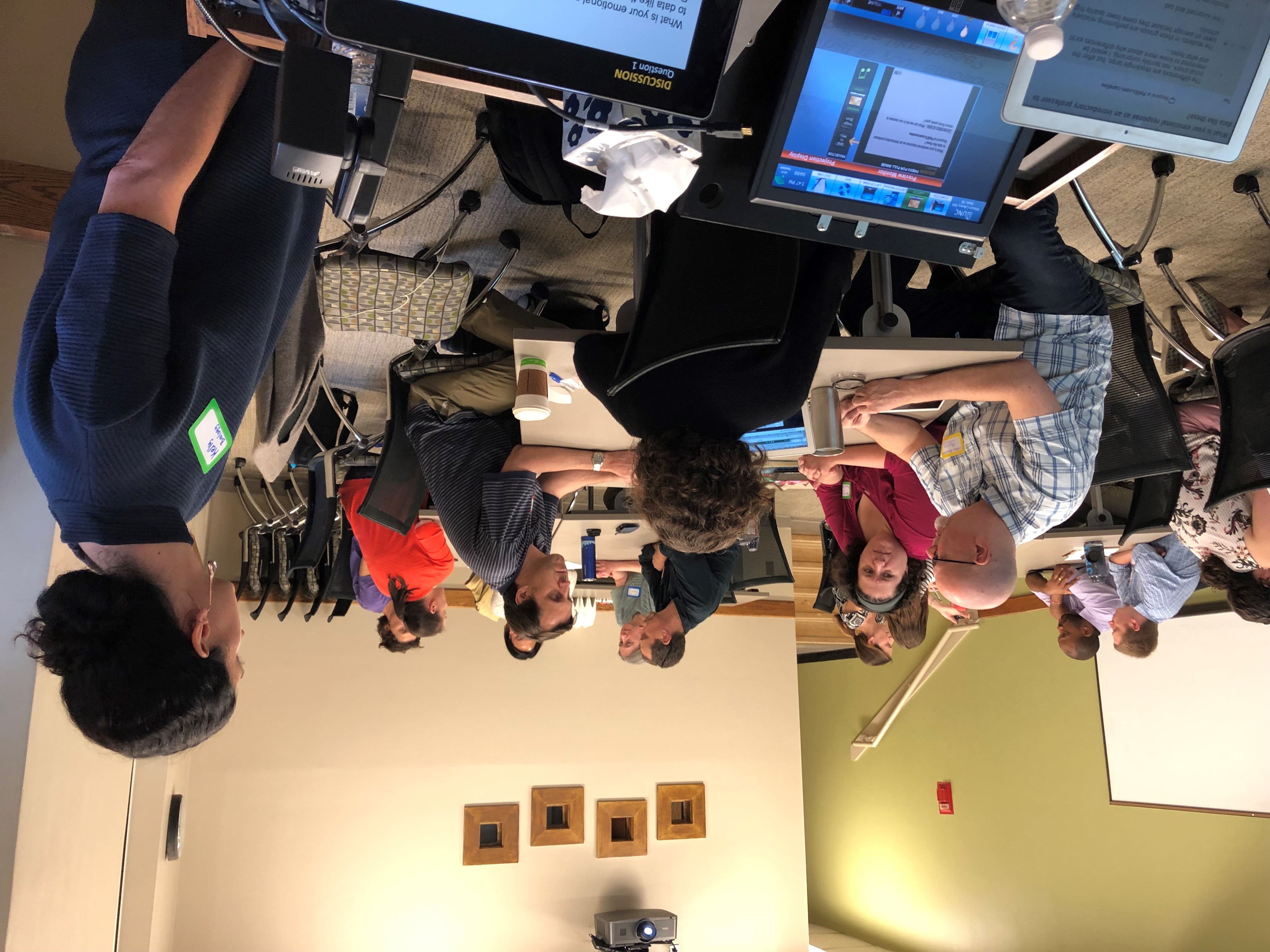
The AAU learning community on the evaluation of teaching aims to transform how teaching is assessed in higher education. The learning community is dedicated to addressing the broad institutional structures, policies, practices, and norms at America's leading research universities that are necessary to:
- Influence the way faculty members view their teaching responsibilities.
- Implement more effective and holistic models to evaluate teaching that focuses on the use of teaching practices proven to maximize student engagement and support student learning.
- Create better systems to recognize and reward evidence-based and equitable teaching practices that results in student success and the full inclusion of students from diverse backgrounds.
- Integrate concepts of justice and equity into the faculty rewards system.
AAU is pleased that Shirley Malcom, Director of SEA Change and a Senior Advisor for AAAS; Archie Holmes, Executive Vice Chancellor for Academic Affairs, The University of Texas System; and Suzanne Rivera, President of Macalester College have confirmed that they will serve as Senior Advisory Committee members for the project and help us advance this important work.
The effort is supported by funding from the Howard Hughes Medical Institute.
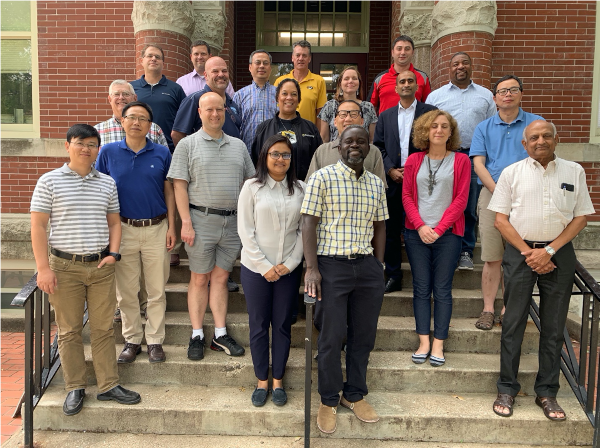 Civil and Environmental Engineering faculty at the University of Missouri endeavor to provide excellent and inclusive teaching that enhances student learning outcomes. As part of the AAU Learning Community on Evaluating Effective and Equitable Teaching, the department will implement a pilot teaching evaluation. This will consist of new forms for student feedback, peer review and self-reflection as recommended by the University’s Task Force to Enhance Learning and Teaching. By participating in the learning community and engaging in cross-institutional learning, the department aims to further improve the evaluation process. The overall goal is improved teaching evaluation that will (1) allow the department to maximize student engagement and learning; (2) create a better system to recognize and reward excellence in teaching; (3) reward equitable teaching practices that foster the inclusion of students from diverse backgrounds; and (4) help the University address instructional policies related to teaching evaluations.
Civil and Environmental Engineering faculty at the University of Missouri endeavor to provide excellent and inclusive teaching that enhances student learning outcomes. As part of the AAU Learning Community on Evaluating Effective and Equitable Teaching, the department will implement a pilot teaching evaluation. This will consist of new forms for student feedback, peer review and self-reflection as recommended by the University’s Task Force to Enhance Learning and Teaching. By participating in the learning community and engaging in cross-institutional learning, the department aims to further improve the evaluation process. The overall goal is improved teaching evaluation that will (1) allow the department to maximize student engagement and learning; (2) create a better system to recognize and reward excellence in teaching; (3) reward equitable teaching practices that foster the inclusion of students from diverse backgrounds; and (4) help the University address instructional policies related to teaching evaluations.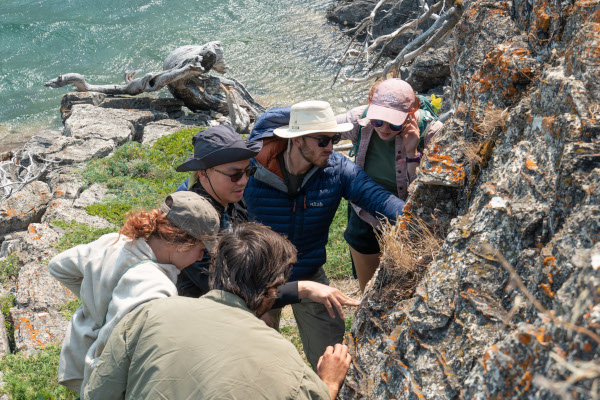 The University of Oregon has shifted to multi-source and criteria-based teaching evaluations. The framework is designed to be more equitable and transparent by ensuring evaluations are based on specific criteria – that teaching be professional, inclusive, engaged in reflective practice, and research informed – and include multiple sources of evidence. Individual departments are now redesigning their own processes to adopt the framework – identifying their values, aligning their own policies and processes to the new framework, and ensuring the systems they use to collect evidence of teaching effectiveness are working. The Earth Sciences Department is engaging in these steps and participating in the AAU Learning Community as an opportunity to pursue a model that best reflects the diversity of teaching environments and approaches in the unit. As a department teaching everything from small, intensive field and lab courses to large enrollment core education courses, the diversity of teaching modes in Earth Sciences presents challenges to consistent teaching evaluation. However, Earth Sciences as a field also has a substantial body of scholarship on the science of teaching and learning that can inform best practices. Participation in the AAU Learning Community will provide an opportunity to reflect on the variety of approaches other institutions take to evaluating teaching across this spectrum and to find policies and processes that fit the department’s teaching ethos.
The University of Oregon has shifted to multi-source and criteria-based teaching evaluations. The framework is designed to be more equitable and transparent by ensuring evaluations are based on specific criteria – that teaching be professional, inclusive, engaged in reflective practice, and research informed – and include multiple sources of evidence. Individual departments are now redesigning their own processes to adopt the framework – identifying their values, aligning their own policies and processes to the new framework, and ensuring the systems they use to collect evidence of teaching effectiveness are working. The Earth Sciences Department is engaging in these steps and participating in the AAU Learning Community as an opportunity to pursue a model that best reflects the diversity of teaching environments and approaches in the unit. As a department teaching everything from small, intensive field and lab courses to large enrollment core education courses, the diversity of teaching modes in Earth Sciences presents challenges to consistent teaching evaluation. However, Earth Sciences as a field also has a substantial body of scholarship on the science of teaching and learning that can inform best practices. Participation in the AAU Learning Community will provide an opportunity to reflect on the variety of approaches other institutions take to evaluating teaching across this spectrum and to find policies and processes that fit the department’s teaching ethos. 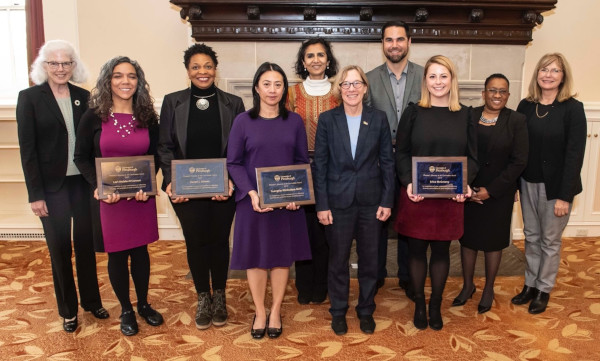 The University of Pittsburgh’s Psychology department has leveraged its expertise in measurement and research on learning to completely revise all aspects of its teaching evaluation system, making it more transparent, reliable, grounded in research, and supportive of processes for improvement. On an annual basis, all department faculty complete a teaching self-evaluation survey that both documents their use of research-based and inclusive teaching practices, as well as their systematic data collection and reflection on specific areas of focus for teaching/course improvement over the year. Peer observations of teaching are implemented by a standing committee and are based upon a detailed and validated rubric, alongside a formative debrief conversation. A new rubric has been created to be used with teaching portfolios that are submitted as part of re-appointment and promotion/tenure cases. The portfolio rubric attends to both evidence of attained teaching excellence as well as systematic engagement with improving teaching. All revised processes have been vetted through cycles of testing and department-wide feedback. In addition, a new teaching resources website has been created to address common concerns and provide specific steps for successfully implementing research-based and inclusive teaching strategies, and a teaching-focused lunchtime talk series has been implemented to provide additional support to faculty and graduate student instructors in the department. A larger context of a dean and provost supportive of excellence in teaching through awards and revised evaluation processes provides anchors to the work.
The University of Pittsburgh’s Psychology department has leveraged its expertise in measurement and research on learning to completely revise all aspects of its teaching evaluation system, making it more transparent, reliable, grounded in research, and supportive of processes for improvement. On an annual basis, all department faculty complete a teaching self-evaluation survey that both documents their use of research-based and inclusive teaching practices, as well as their systematic data collection and reflection on specific areas of focus for teaching/course improvement over the year. Peer observations of teaching are implemented by a standing committee and are based upon a detailed and validated rubric, alongside a formative debrief conversation. A new rubric has been created to be used with teaching portfolios that are submitted as part of re-appointment and promotion/tenure cases. The portfolio rubric attends to both evidence of attained teaching excellence as well as systematic engagement with improving teaching. All revised processes have been vetted through cycles of testing and department-wide feedback. In addition, a new teaching resources website has been created to address common concerns and provide specific steps for successfully implementing research-based and inclusive teaching strategies, and a teaching-focused lunchtime talk series has been implemented to provide additional support to faculty and graduate student instructors in the department. A larger context of a dean and provost supportive of excellence in teaching through awards and revised evaluation processes provides anchors to the work. 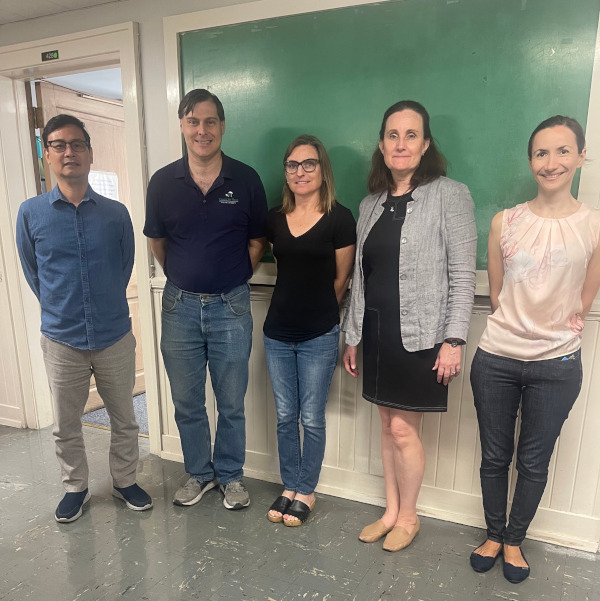 The Tulane Mathematics department is engaged in a two-year process to develop a multi-pronged teaching evaluation system that examines the use of evidence-based effective and inclusive practices. This new evaluation system will enable faculty to continuously grow in their teaching practice. In the first year of the project, the team will research effective practices and evaluation instruments, and run a pilot among a few sections. This experience will inform the implementation phase of the project the following year. A thread for this work is to provide faculty with tools to reflect on their own practice, as well as resources to continuously improve their practice. A critical piece of our process is for faculty to identify individual learning goals each semester and work towards mastery of these specific goals, which will allow faculty to achieve results and not feel overwhelmed. The process of growth will be documented via a document designed by the team to encourage reflection. Our growth-centered model, rather than one based on strict numerical ratings, avoids bias and allows every faculty member the opportunity to demonstrate growth and commitment to improving teaching.
The Tulane Mathematics department is engaged in a two-year process to develop a multi-pronged teaching evaluation system that examines the use of evidence-based effective and inclusive practices. This new evaluation system will enable faculty to continuously grow in their teaching practice. In the first year of the project, the team will research effective practices and evaluation instruments, and run a pilot among a few sections. This experience will inform the implementation phase of the project the following year. A thread for this work is to provide faculty with tools to reflect on their own practice, as well as resources to continuously improve their practice. A critical piece of our process is for faculty to identify individual learning goals each semester and work towards mastery of these specific goals, which will allow faculty to achieve results and not feel overwhelmed. The process of growth will be documented via a document designed by the team to encourage reflection. Our growth-centered model, rather than one based on strict numerical ratings, avoids bias and allows every faculty member the opportunity to demonstrate growth and commitment to improving teaching. 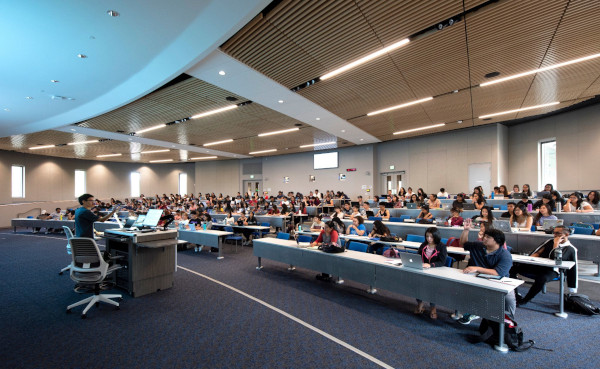 The Department of Developmental and Cell Biology (DCB) at UCI has a history of embracing evidence-based teaching and is committed to improving equity and inclusion in its courses. Roughly one-third of the faculty use departmental peer evaluations in merit and promotion reviews. There is also a five-person teaching committee that meets regularly to conduct peer evaluations, help faculty set up and refine their courses, and provide teaching advice. The DCB teaching committee aims to create a simple and useful workflow that provides faculty with quality feedback. The department’s objective in joining the AAU learning community is to learn new ways to make peer evaluations simple, effective, and supportive so that DCB faculty find value in using them. Participating in the learning community will allow the department to share resources and gain project feedback, as well as encourage them to try other mechanisms to support faculty teaching goals. Ideally in time, every DBI instructor will have a peer evaluation every year and will be able to discuss their goals and progress each time they go up for review.
The Department of Developmental and Cell Biology (DCB) at UCI has a history of embracing evidence-based teaching and is committed to improving equity and inclusion in its courses. Roughly one-third of the faculty use departmental peer evaluations in merit and promotion reviews. There is also a five-person teaching committee that meets regularly to conduct peer evaluations, help faculty set up and refine their courses, and provide teaching advice. The DCB teaching committee aims to create a simple and useful workflow that provides faculty with quality feedback. The department’s objective in joining the AAU learning community is to learn new ways to make peer evaluations simple, effective, and supportive so that DCB faculty find value in using them. Participating in the learning community will allow the department to share resources and gain project feedback, as well as encourage them to try other mechanisms to support faculty teaching goals. Ideally in time, every DBI instructor will have a peer evaluation every year and will be able to discuss their goals and progress each time they go up for review. 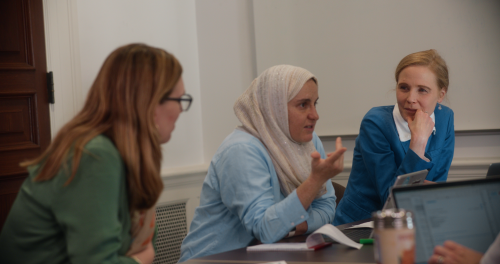 In 2021, UCLA launched the
In 2021, UCLA launched the 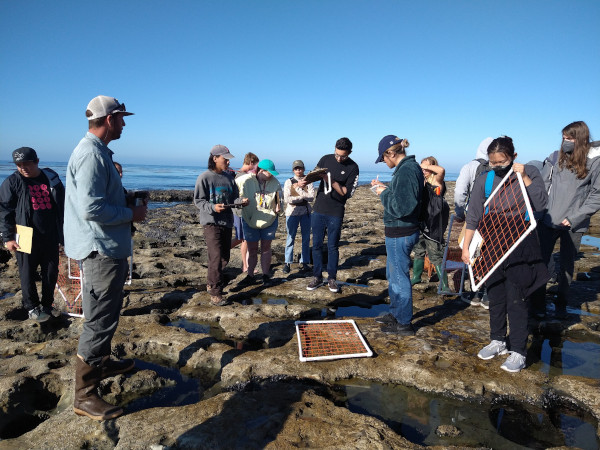 To promote, recognize and reward excellence in teaching in an equity-minded framework the Department of Ecology and Evolutionary Biology at UCSC is pairing a transparent inventory of evidence-based teaching practices co-created in faculty workshops with a requirement to engage in peer-supported review each academic year. Faculty will choose from a menu of peer-supported review options that range in time commitment and scope, but which all have in common a requirement for reflection with a colleague from within the department, the campus teaching center, or institutional research group. This approach recognizes constraints around faculty time and differences in how faculty may engage with their teaching at different career stages and balances these factors with a mechanism to enhance peer discussion and collaboration around teaching practices. Faculty will write about and provide evidence of their peer-supported review in their personal statement as part of their reflection on teaching. Department letter writers will use the inventory to highlight evidence-based practices adopted by the faculty member in the letter. The project will be evaluated through faculty surveys about their experience as well as by quantifying department and senate letters returned with personnel files to determine whether there is increased recognition and emphasis on evidence-based teaching practices.
To promote, recognize and reward excellence in teaching in an equity-minded framework the Department of Ecology and Evolutionary Biology at UCSC is pairing a transparent inventory of evidence-based teaching practices co-created in faculty workshops with a requirement to engage in peer-supported review each academic year. Faculty will choose from a menu of peer-supported review options that range in time commitment and scope, but which all have in common a requirement for reflection with a colleague from within the department, the campus teaching center, or institutional research group. This approach recognizes constraints around faculty time and differences in how faculty may engage with their teaching at different career stages and balances these factors with a mechanism to enhance peer discussion and collaboration around teaching practices. Faculty will write about and provide evidence of their peer-supported review in their personal statement as part of their reflection on teaching. Department letter writers will use the inventory to highlight evidence-based practices adopted by the faculty member in the letter. The project will be evaluated through faculty surveys about their experience as well as by quantifying department and senate letters returned with personnel files to determine whether there is increased recognition and emphasis on evidence-based teaching practices. 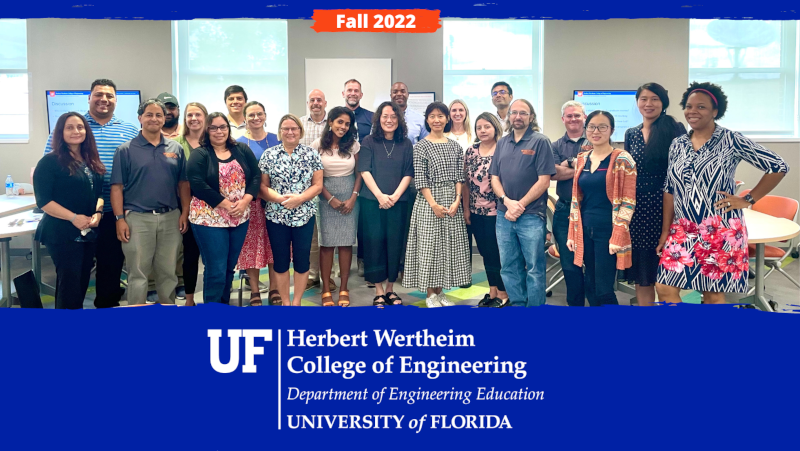 The University of Florida Department of Engineering Education (EED) is leading the development and implementation of a new process to evaluate and promote teaching excellence and innovation while recognizing the unique cultures of the different departments in the Herbert Wertheim College of Engineering (HWCOE). EED has the unique characteristic of being mainly composed of teaching faculty (non-tenure track) who teach technical engineering courses in other disciplinary departments allowing them to interact with all undergraduate students in HWCOE. This project will aim to establish (1) a teaching orientation program supported by the HWCOE and (2) a culturally-relevant rubric on teaching excellence to improve teaching peer evaluation procedures. An emphasis of the rubric will be to gather formative and summative evidence through peer evaluation and self-reflection that will more equitably reward and promote teaching excellence. The teaching orientation program will introduce faculty needs, expectations, and evidence-based contemporary pedagogies used in undergraduate engineering education programs. An emphasis of the rubric will be to gather formative and summative evidence through peer evaluation and self-reflection that will more equitably reward and promote teaching excellence. Efforts will be sustained by creating a teaching evaluation committee and faculty communities of practice.
The University of Florida Department of Engineering Education (EED) is leading the development and implementation of a new process to evaluate and promote teaching excellence and innovation while recognizing the unique cultures of the different departments in the Herbert Wertheim College of Engineering (HWCOE). EED has the unique characteristic of being mainly composed of teaching faculty (non-tenure track) who teach technical engineering courses in other disciplinary departments allowing them to interact with all undergraduate students in HWCOE. This project will aim to establish (1) a teaching orientation program supported by the HWCOE and (2) a culturally-relevant rubric on teaching excellence to improve teaching peer evaluation procedures. An emphasis of the rubric will be to gather formative and summative evidence through peer evaluation and self-reflection that will more equitably reward and promote teaching excellence. The teaching orientation program will introduce faculty needs, expectations, and evidence-based contemporary pedagogies used in undergraduate engineering education programs. An emphasis of the rubric will be to gather formative and summative evidence through peer evaluation and self-reflection that will more equitably reward and promote teaching excellence. Efforts will be sustained by creating a teaching evaluation committee and faculty communities of practice. 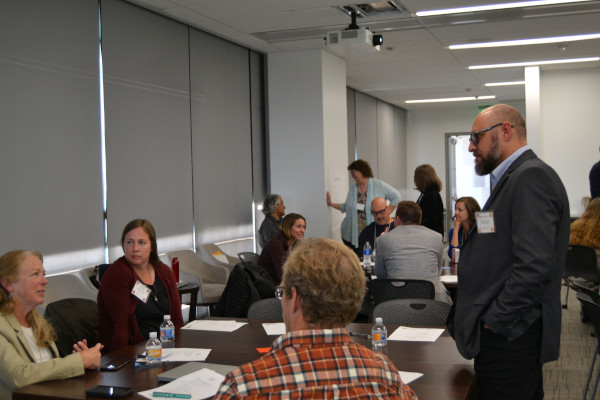 Several STEM units at the University of Utah are pursuing efforts to promote a culture that values teaching as a communal, reflective, and inclusive enterprise. The Department of Physics & Astronomy recently created a Teaching Excellence committee to provide peer support and feedback, and developed a formative peer teaching observation protocol based on literature. In spring 2022, a cohort of roughly 15 faculty fellows engaged in multiple cross-disciplinary and cross-institutional (with Salt Lake Community College) peer-teaching observations using a protocol they developed and refined based on their experience during the program. In summer 2022, the Chemistry Department formed a peer-mentoring committee to support inclusive and reflective teaching, and multiple STEM departments (e.g., Biology, Physics & Astronomy, and Geology & Geophysics) have recently enacted large-scale curriculum reforms centering equity and inclusion. To increase capacity to enact evidence-based inclusive instruction, the existing Learning Assistant program is being expanded from four to eight departments and from 120 to over 200 learning assistants each semester. To further propagate these activities, the newly merged College of Science and College of Mines & Earth Sciences is developing plans for an annual Teaching Reflection week to debut in Fall 2023. During this event, instructors will volunteer to open their classrooms to visitation/observation with pre/post reflections, and the event will end with a celebratory and reflective luncheon hosted by the Colleges.
Several STEM units at the University of Utah are pursuing efforts to promote a culture that values teaching as a communal, reflective, and inclusive enterprise. The Department of Physics & Astronomy recently created a Teaching Excellence committee to provide peer support and feedback, and developed a formative peer teaching observation protocol based on literature. In spring 2022, a cohort of roughly 15 faculty fellows engaged in multiple cross-disciplinary and cross-institutional (with Salt Lake Community College) peer-teaching observations using a protocol they developed and refined based on their experience during the program. In summer 2022, the Chemistry Department formed a peer-mentoring committee to support inclusive and reflective teaching, and multiple STEM departments (e.g., Biology, Physics & Astronomy, and Geology & Geophysics) have recently enacted large-scale curriculum reforms centering equity and inclusion. To increase capacity to enact evidence-based inclusive instruction, the existing Learning Assistant program is being expanded from four to eight departments and from 120 to over 200 learning assistants each semester. To further propagate these activities, the newly merged College of Science and College of Mines & Earth Sciences is developing plans for an annual Teaching Reflection week to debut in Fall 2023. During this event, instructors will volunteer to open their classrooms to visitation/observation with pre/post reflections, and the event will end with a celebratory and reflective luncheon hosted by the Colleges. 
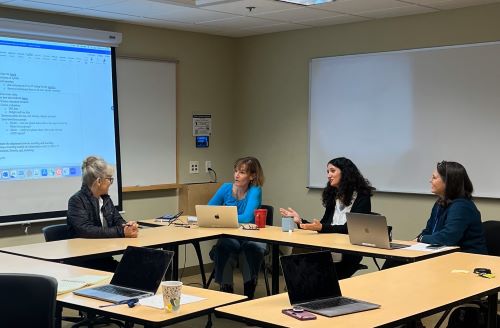 The Department of Biology at Duke University is interested in moving away from the “single voice” of student evaluations in the evaluation of teaching for tenure and promotion. We intend to bring in more perspectives to describe an educator’s curriculum design, classroom community, and teaching strategies. The departmental goals align well to a university-level peer evaluation program that is being piloted. Our project aims to educate departmental faculty about the range of materials that can be added to a dossier such as peer observations, descriptive syllabi, example assessments, evidence of student learning and more. If we are successful, we would see dossiers including the “three voices” from students, peers, and instructor self-reflection. Our approach will begin by elevating discussion of the topic through outside speakers in a departmental symposium. We’ll use regular faculty meetings to dive into concrete ideas of formative and summative teaching evaluations. Lastly, we will pilot departmental peer observations to give examples to faculty of what the process can look like from a formative perspective. Through participation in the learning community, we hope to hear about challenges and successes from similar institutions and incorporate what we learn into our plans.
The Department of Biology at Duke University is interested in moving away from the “single voice” of student evaluations in the evaluation of teaching for tenure and promotion. We intend to bring in more perspectives to describe an educator’s curriculum design, classroom community, and teaching strategies. The departmental goals align well to a university-level peer evaluation program that is being piloted. Our project aims to educate departmental faculty about the range of materials that can be added to a dossier such as peer observations, descriptive syllabi, example assessments, evidence of student learning and more. If we are successful, we would see dossiers including the “three voices” from students, peers, and instructor self-reflection. Our approach will begin by elevating discussion of the topic through outside speakers in a departmental symposium. We’ll use regular faculty meetings to dive into concrete ideas of formative and summative teaching evaluations. Lastly, we will pilot departmental peer observations to give examples to faculty of what the process can look like from a formative perspective. Through participation in the learning community, we hope to hear about challenges and successes from similar institutions and incorporate what we learn into our plans.